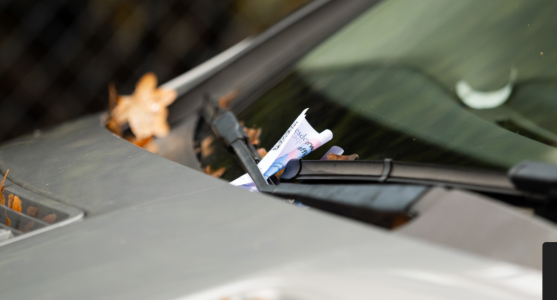Parking fines spark debate: Are councils cash grabbing with outrageous penalties?
By
- Replies 24
Navigating the maze of parking regulations can be a headache for any driver.
Still, it's enough to make anyone's blood boil when the fines for a minor miscalculation can be as steep as a week's worth of groceries.
Across Australia, drivers are voicing their frustration over what they perceive as excessive and unjust parking fines, leading to a growing outcry against what some call a 'legal scam' perpetrated by 'greedy councils'.
The issue of parking fines is contentious, with many Australians feeling the pinch of what they see as a revenue-raising tactic rather than a fair penalty system.
The recent move by the Minns government in New South Wales to ban ticketless parking fines is a step in the right direction for many.
This practice, where drivers would only know they'd been fined once a letter arrived in the mail, often left them with no chance to contest the fine due to a lack of evidence from the scene.
Consider the scenario where parking your car just 15 minutes longer than a sign permits can result in a fine exceeding $100.
Many drivers, including Caleb Bond, have found themselves in this situation.
Bond's experience of being fined nearly $130 in Sydney for overstaying his welcome by a mere quarter of an hour has sparked a debate about the fairness of such penalties.
For Bond, a simple decision to enjoy another pint at the pub resulted in a fine that cost the equivalent of 13 more pints.
Moreover, using technology such as CCTV cameras to enforce parking regulations has added another layer of surveillance that some find intrusive.
In Adelaide, a man received a $116 fine for momentarily stopping on a yellow line—a penalty issued based on CCTV footage for an act that lasted 10 seconds.
There have been instances where entire streets have been caught off guard by sudden changes in parking regulations, such as Adelaide Street, which was turned into a 24-hour bike lane without residents' knowledge.
The result? A slew of $257 fines for unsuspecting locals who had been parking there for years.
Many of these fines were overturned when challenged.
With council rates already a significant expense for many households—some of which have seen increases of nearly 10 per cent per annum—the additional burden of hefty parking fines feels like a step too far for many Australians.
In other news, drivers in Australia, including those in NSW, can face fines for blocking driveways or footpaths with their vehicles, as a Newcastle woman recently discovered when it disrupted her birthday plans.
While this offence is not widely known, parking over a driveway or footpath can result in significant fines that vary by council area.
 Have you been hit with a parking fine that felt more like a cash grab than a just punishment? Share your experiences in the comments below.
Have you been hit with a parking fine that felt more like a cash grab than a just punishment? Share your experiences in the comments below.
Still, it's enough to make anyone's blood boil when the fines for a minor miscalculation can be as steep as a week's worth of groceries.
Across Australia, drivers are voicing their frustration over what they perceive as excessive and unjust parking fines, leading to a growing outcry against what some call a 'legal scam' perpetrated by 'greedy councils'.
The issue of parking fines is contentious, with many Australians feeling the pinch of what they see as a revenue-raising tactic rather than a fair penalty system.
The recent move by the Minns government in New South Wales to ban ticketless parking fines is a step in the right direction for many.
This practice, where drivers would only know they'd been fined once a letter arrived in the mail, often left them with no chance to contest the fine due to a lack of evidence from the scene.
Consider the scenario where parking your car just 15 minutes longer than a sign permits can result in a fine exceeding $100.
Many drivers, including Caleb Bond, have found themselves in this situation.
Bond's experience of being fined nearly $130 in Sydney for overstaying his welcome by a mere quarter of an hour has sparked a debate about the fairness of such penalties.
For Bond, a simple decision to enjoy another pint at the pub resulted in a fine that cost the equivalent of 13 more pints.
Moreover, using technology such as CCTV cameras to enforce parking regulations has added another layer of surveillance that some find intrusive.
In Adelaide, a man received a $116 fine for momentarily stopping on a yellow line—a penalty issued based on CCTV footage for an act that lasted 10 seconds.
There have been instances where entire streets have been caught off guard by sudden changes in parking regulations, such as Adelaide Street, which was turned into a 24-hour bike lane without residents' knowledge.
The result? A slew of $257 fines for unsuspecting locals who had been parking there for years.
Many of these fines were overturned when challenged.
With council rates already a significant expense for many households—some of which have seen increases of nearly 10 per cent per annum—the additional burden of hefty parking fines feels like a step too far for many Australians.
In other news, drivers in Australia, including those in NSW, can face fines for blocking driveways or footpaths with their vehicles, as a Newcastle woman recently discovered when it disrupted her birthday plans.
While this offence is not widely known, parking over a driveway or footpath can result in significant fines that vary by council area.
Key Takeaways
- Caleb Bond criticised councils for issuing hefty parking fines, labelling them a 'legal scam'.
- New South Wales has banned the practice of issuing ticketless parking fines, which adds difficulty for drivers in disputing fines.
- Bond argued that parking fines are often disproportionately high compared to the perceived offence, suggesting penalties should be capped at $50.
- Investigation into parking fines disputed in Adelaide revealed that half of the challenged fines were overturned, questioning the validity of many issued fines.









